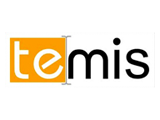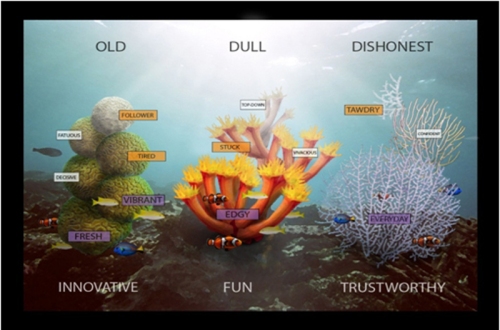
Project ROBUST is receiving positive feedback from the scientific community as well as from potential industry clients for its work on the analysis and management of Online Communities. Only recently ROBUST researchers from the Open University in Milton Keynes received the Best Paper Award at the SocialCom Conference in Amsterdam. At the same time the dialog that ROBUST maintains with large industry accounts confirms the real-world relevance of the ROBUST research agenda.
ROBUST – (EC Project 257859, cf. http://www.robust-project.eu/) is concerned with the observation that Business Online Communities have become an important part of many professional environments in large organizations, comprising often many hundreds of thousands of participants and millions of contributions and posts, but that at the same time sound methods that help managing and administrating the massive data set that created here are often missing: Which communities flourish, which are fledgling? Which factors are responsible that newbies feel welcome and experts feel rewarded? And what can the community owners do about this with limited resources while facing an endless stream of posts and exchanges on these platforms.
In order to investigate this, the EU project assembles a diverse set of partners from academia, small software companies as well as big corporations to investigate challenges and solutions here. Coordinated by the University of Koblenz, participants from SAP Research in Dresden, IBM Haifa, Softwaremind from Krakow in Poland, the Technical University Berlin, Polecat from Dublin, the Open University in Milton Keynes, the DERI Institute from the National University of Ireland in Galway, IT Innovation from Southampton and TEMIS from Paris cooperate in addressing these tasks in the form of dedicated software components and best practices.
As diverse as these challenges are, so are the solutions that start to take shape in the ROBUST project: IT Innovation progresses with an application allowing to model and monitor the various risks a community owner might be facing (experts leaving or exchanges becoming unproductive), Polecat is working on visual metaphors to provide a quick insight into the health of a community while the University of Koblenz is investigating whether and how patterns of agreement and disagreement among participants correlate with their observed participation.
TEMIS, working on components that automate the analysis of the textual content inside the communities, is busy with the creation of an infrastructure allowing to exchange these components with comparable installations also outside ROBUST in order to allow for sustainable exploitation of ROBUST results beyond and outside the context of the project.
“ROBUST not only addresses a real-world challenge in the administration of Business Online Communities, it also provides a perfect environment for a company like TEMIS to proceed with refining and developing our components on these tasks”, declares Stefan Geißler, Managing Director of TEMIS Germany. “The consortium with large IT companies, introducing their Communities as test beds on the one hand side and excellent research partners on the other hand represents a precious opportunity to investigate use cases on hot topics around Big Data and Social Media.”
Fig 1: One particular approach pursued in ROBUST is work around the visualization of the “Health” of a community with appropriate graphic metaphors. The example here – chosen for its obvious visual appeal – exemplifies work being carried out by Polecat, aimed at providing users/administrators with a high-level feedback about the state of affairs on a given community.
The scientific work carried out in ROBUST has repeatedly lead to distinguished publications. Very recently Claudia Wagner, Matthew Rowe, Markus Strohmaier and Harith Alani from the Open University received the Best Paper Award for their contribution “Ignorance isn’t Bliss: An Empirical Analysis of Attention Patterns in Online Communities” at the SocialCom Conference in Amsterdam.
With this type of blessing and benefitting from work on the implementation of a prototype system carried out in ROBUST, the project is now increasingly discussing the perspective to employ ROBUST results also in industrial contexts and real-world settings.




























